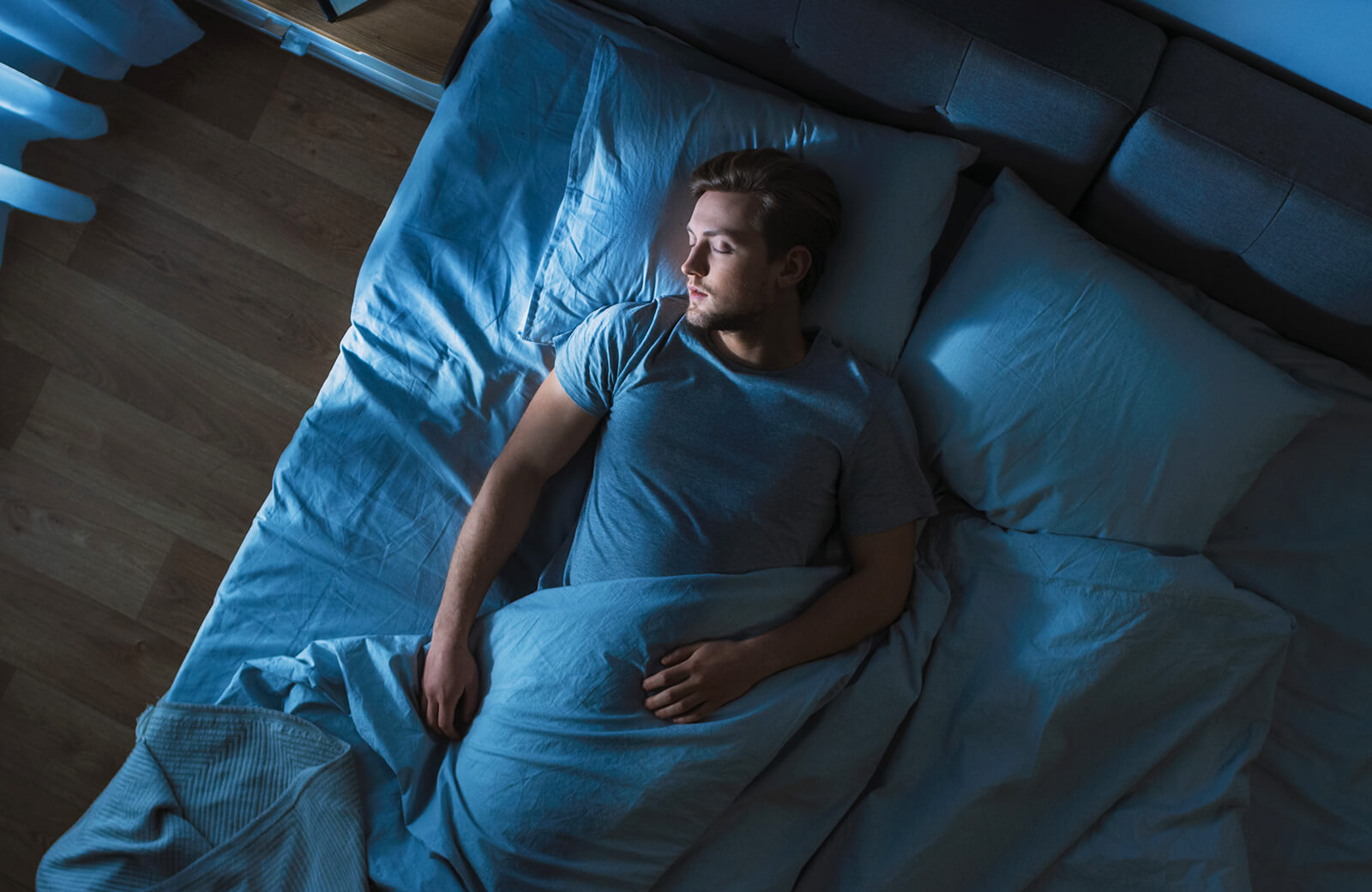
What happens when you sleep?
We spend about a third of our lives sleeping. This alone shows that sleep plays a central role in our lives. And not without reason: sleep has many functions that are essential for a healthy everyday life. You can find out exactly what happens when you sleep and how you can get the most out of your sleep here.
Table of Contents
- Active while sleeping
- Sleep phases at a glance
- This happens while you sleep
- Sleep – the central recovery period
- Conclusion
1. Active while sleeping
Sleep = doing nothing? None! Numerous essential processes take place during sleep, because sleep is the central regeneration period for our body and especially for our brain. It has long been assumed that our brains are less active when we sleep - in fact, they are just differently active. It processes information continuously throughout the day and these processes require a lot of energy. Although the brain is only approx. Occupying 2% of our body volume, it consumes approx. 20% of the total energy. When we rest and close our eyes, the activity of our nerve cells (neurons) reduces and energy consumption slowly decreases.
During the night we go through several sleep cycles, which in turn are divided into different sleep phases. One cycle lasts approx. 90 to 110 minutes and is repeated several times per night. The first two sleep cycles are particularly important for brain recovery. This is why they are also known as core sleep.
2. Sleep phases at a glance
After a short period of falling asleep, we usually fall into a light sleep stage. Then our muscles relax, pulse and breathing become more even and the body temperature drops.
This superficial sleep, in which we spend almost half of our sleeping time, is then followed by deep sleep. It dominates the first third of the night and ensures that our body shuts down even further, heart rate and breathing slow down and blood pressure drops. Especially during deep sleep, when nerve activity is significantly reduced, the energy stores in our brain can recharge. At the same time, numerous hormones and messenger substances are released that control and support metabolic and regeneration processes.

After deep sleep, we then slide into the dream sleep phases, also known as REM phases, in which our brain processes and evaluates the experiences of the day. REM stands for “Rapid Eye Movement” because during these sleep periods we dream and move our eyes quickly back and forth under our closed eyelids. For this to work, blood flow to the brain increases, blood pressure rises and our heart rate and breathing also become more irregular.
Core sleep, i.e. the first two sleep cycles, are particularly important for our regeneration. But what actually happens in our body while we sleep?
3. This happens while you sleep
Learning and memory processes
At work, at school or in our free time – our brain absorbs information everywhere, both consciously and unconsciously. While sleeping, these impressions are stored, processed, organized or deleted by the brain and move from short-term memory to long-term memory. In this way, relevant information is stored for the long term and made available for retrieval and unimportant things are deleted so that after sleep we are ready for the next day. Sleep therefore plays a central role in our ability to learn. You can find out more about learning while sleeping in this article.
Strengthening the immune system
During sleep, the number of natural defense cells in the body increases and our immune system works at full speed to protect us from viruses, bacteria and other pathogens. “The immune system is directly related to the length and quality of our sleep.says sleep researcher and smartsleep founder Dr. Markus Dworak. So if you get enough sleep, you reduce the likelihood of getting sick and give the body time to strengthen its defenses.
Cell renewal

Our hormone balance is also active while we sleep. Important growth hormones are released, which are involved in almost all functions in our body. They control enzyme production and cell renewal, help build and repair tissue and support the regeneration of our body cells. Sleep is particularly essential for maintaining healthy skin, hair, nails and connective tissue and therefore forms an important basis for a healthy and beautiful appearance. You can read about exactly how sleep makes us beautiful here.
Optimization of metabolism
At night the body has the rest it needs for important metabolic and digestive processes. Metabolic products, such as uric acid, are broken down more intensively and fat metabolism is also active to provide energy for regeneration.
4. Sleep – the central recovery period
Sleep is essential for our body and mind in many ways. While the conscious mind rests at night, the brain does not remain idle - it processes, sorts and stores the information and impressions of the day. And our body also needs sleep to repair body cells, regulate hormone balance and metabolism and strengthen the immune system. These are numerous tasks that are fundamental to our health and show us how important healthy sleeping habits and enough sleep really are.
5. Conclusion
-
At night we go through several sleep cycles, which consist of falling asleep, light sleep, deep sleep and dream or Structure REM sleep phases
-
Learning and memory processes take place during sleep, which process, organize and store information and impressions from the day
-
During sleep, growth hormones are released, which support cell renewal and regeneration and thus promote healthy skin, hair and nails
-
The metabolism is regulated and optimized during sleep
-
The number of defense cells increases at night, which strengthens the immune system while you sleep
Greetings and see you soon!



Leave a comment
This site is protected by hCaptcha and the hCaptcha Privacy Policy and Terms of Service apply.